Reyna Tropical: Music, Community & Representation
Reyna Tropical: Música, Comunidad y Representación
By Carmen Rita Candelario
I remember when I was little, I used to fantasize about being a journalist. I often imagined myself with a notepad (this is pre-smart phones, OKAY?), asking a million questions. As it turns out, being a journalist is so much more than that. Among many things, being a journalist means reading more than you write, continually research and cold-calling people. These are also things I admittedly don't often do nor excel at.
Thanks to Mixta, I can flex my journalistic muscles in the best way I know how to: talking to people. At the latest LatinXpressions at HI New York, I armed myself with liquid courage and sat down with Fabi and Sumo, from Reyna Tropical. We chatted about music, creativity, community and the Latinx community.
Fabi and Sumo migrated to the United States, from Mexico, when they were young and grew up in enclaves of Latinx community, Texas and California respectively. Fabi currently resides in Portland, Oregon, while Sumo is still in Los Angeles, California, which means they travel for gigs.
I know what you are thinking, how did Reyna Tropical start then? The two artists met over two years ago at Rebel Music Academy, where they started to experiment together. The pair decided to post one of their tracks, not knowing where it would take them. The band had been an 'accident' as they call it, but when there are good chemistry and the right intention, I firmly believe things work out. Shortly after, the band started to get attention, and Bomba Stereo asked them to open for them in front of 2,000 people.
Their music, which incorporates influences from afro punk, the African diaspora and Colombian rhythms (they just visited Colombia), is still an experiment. The band also has an interesting way of composing tracks, with Fabi laying down the vocals and chords as soon as inspiration hits, and Sumo leveraging those and creating something new. Fabi references this process as something similar to taking a photo or capturing a moment in time. Somehow, when listening to her music, this made perfect sense to me.
Towards the end of our chat, I asked Fabi and Sumo how they felt about Latinx music right now and if there is anything they would like to see more of. Fabi mentioned how the community is widening the scope of what Latinx music means, and becoming more visible and accessible. She added, "the Latinx genre is more multi-faceted than what people think. We [Reyna Tropical] get to present what that could look like."
Our conversation, then, evolved into the community itself. We talked about how important it is for all Latinx people to feel represented by music and publications, and how inaccessible some of these spaces feel. This feeling is familiar to Fabi, who is also the founder of She Shreds, a magazine dedicated to women guitarists and bassists.
While there is a lot of growth that needs to happen in the Latinx music scene, one thing is clear: they need our support. Similar to how we encourage you to share our content, we hope that you do the same with the music Reyna Tropical is making. As a community, we often forget the power (real power) we have to change industries.
Before I let them go, I made sure to mention a Nielsen study from 2017 that to this day gives me chills. At 28 million, the Latinx population accounts for 17% of the total U.S. female population. Out of those 28 million women, almost half (45%) of all U.S. born Hispanic females are under the age of 18. Let that sink in why you play one of my favorite tracks from Reyna Tropical, Como Fuego. Yeah, there is a metaphor in there.
Recuerdo que cuando era pequeña, solía fantasear con ser periodista. A menudo me imaginaba con una libreta (esto era antes de los iPhones, ¿okay?), haciendo un millón de preguntas. Resulta que ser periodista es mucho más que eso. Entre muchas cosas, ser periodista significa leer más de lo que escribes, investigar continuamente y llamar a la gente. Estas también son cosas que admito que no hago a menudo.
Gracias a Mixta, puedo practicar y hacer lo que más me gusta: hablar con la gente. Durante la última entrega de LatinXpressions en HI New York, me armé de valor líquido (vino blanco) y me senté con Fabi y Sumo de Reyna Tropical. Allí charlamos sobre música, creatividad y la comunidad Latinx.
Fabi y Sumo emigraron a los Estados Unidos, desde México, cuando eran jóvenes y crecieron en enclaves de la comunidad Latinx, Texas y California, respectivamente. Fabi actualmente reside en Portland, Oregón, mientras que Sumo todavía está en Los Ángeles, California, lo que significa que viajan por conciertos.
Sé lo que estás pensando, ¿cómo comenzó Reyna Tropical entonces? Lxs dos artistas se conocieron hace más de dos años en Rebel Music Academy, donde comenzaron a experimentar juntxs. El par decidió publicar una de sus canciones, sin saber a dónde lxs llevaría. La banda había sido un "accidente" como le dicen ellxs, pero cuando hay buena química y la intención correcta, creo firmemente que las cosas simplemente funcionan. Poco después, la banda comenzó a llamar la atención, y Bomba Stereo les pidió que abrieran para ellos frente a 2,000 personas.
Su música, la cual incorpora influencias del afro punk, la diáspora africana y los ritmos colombianos (¡acaban de visitar Colombia!), sigue siendo un experimento. La banda también tiene una forma interesante de componer sus canciones, con Fabi colocando las voces y los acordes tan pronto como llega la inspiración, y Sumo que los utiliza para crear algo nuevo en su estudio. Fabi hace referencia a este proceso como algo similar a tomar una foto o capturar un momento que no quisiera olvidar. De alguna manera, cuando escuchaba su música, esto tenía mucho sentido para mí.
Hacia el final de nuestra conversación, les pregunté a Fabi y a Sumo cómo se sentían con respecto a la música Latinx actualmente y si había algo de lo que quisieran ver más. Fabi mencionó cómo la comunidad está ampliando el alcance de lo que significa la música Latinx y haciéndose más visible y accesible. Ella agregó, "el género Latinx es más multifacético de lo que la gente piensa. Nosotrxs [Reyna Tropical] presentamos cómo podría ser eso”.
Nuestra conversación, luego, se concentró en la comunidad. Hablamos sobre la importancia de que todas las personas latinxs se sientan representadxs por la música y las publicaciones, y cuán inaccesibles se sienten algunos de estos espacios. Este sentimiento es familiar para Fabi, quien también es la fundadora de She Shreds, una revista dedicada a guitarristas y bajistas femeninas.
Si bien hay mucho crecimiento que debe suceder en la escena musical Latinx, una cosa está clara: necesitan nuestro apoyo. De manera similar a cómo te alentamos a compartir nuestro contenido, esperamos que hagas lo mismo con la música de Reyna Tropical, si también te gusta. Como comunidad, a menudo olvidamos el poder que tenemos para cambiar industrias y lo que consumimos.
Antes de dejarlxs ir, me aseguré de mencionar un estudio de Nielsen de 2017, que hasta el día de hoy me da escalofríos, de la mejor manera. Con 28 millones, la población Latinx representa el 17% del total de la población femenina estadounidense. De esos 28 millones de mujeres, casi la mitad (45%) de todas las hispanas nacidas en los EE. UU. son menores de 18 años. Piénsalo por un momento mientras escuchas una de mis canciones favoritas de Reyna Tropical, Como Fuego. Sí, hay una metáfora ahí ;)
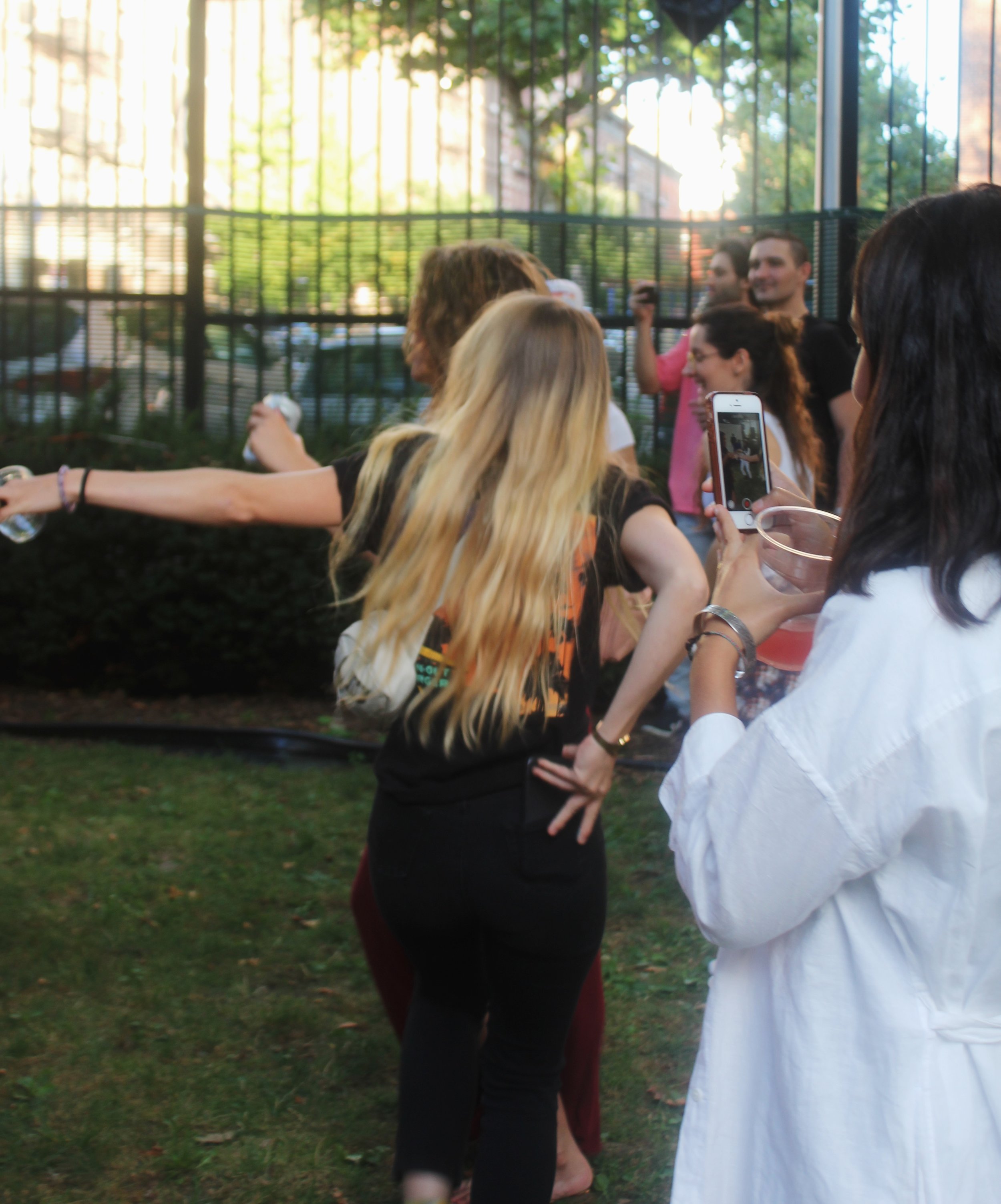
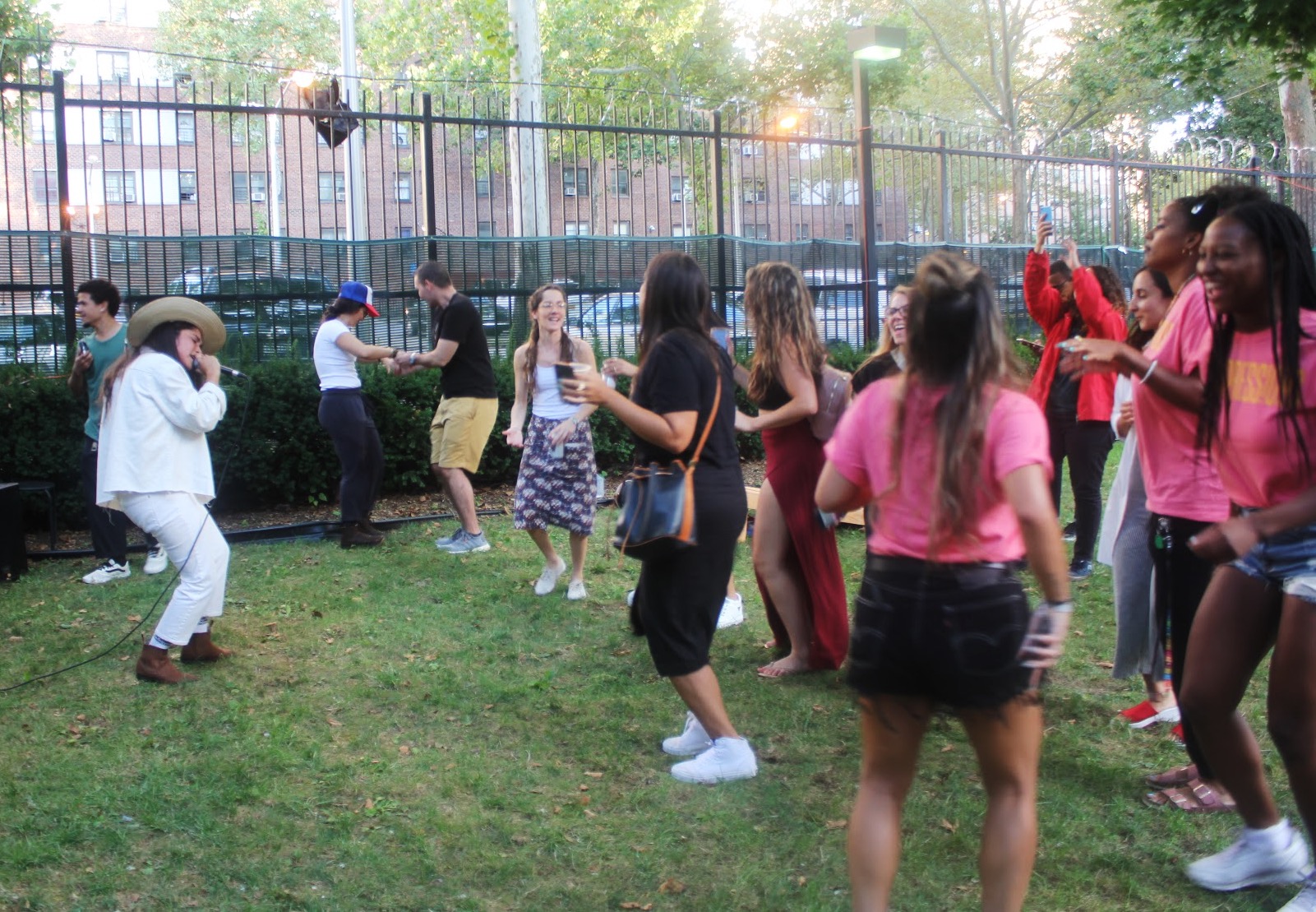
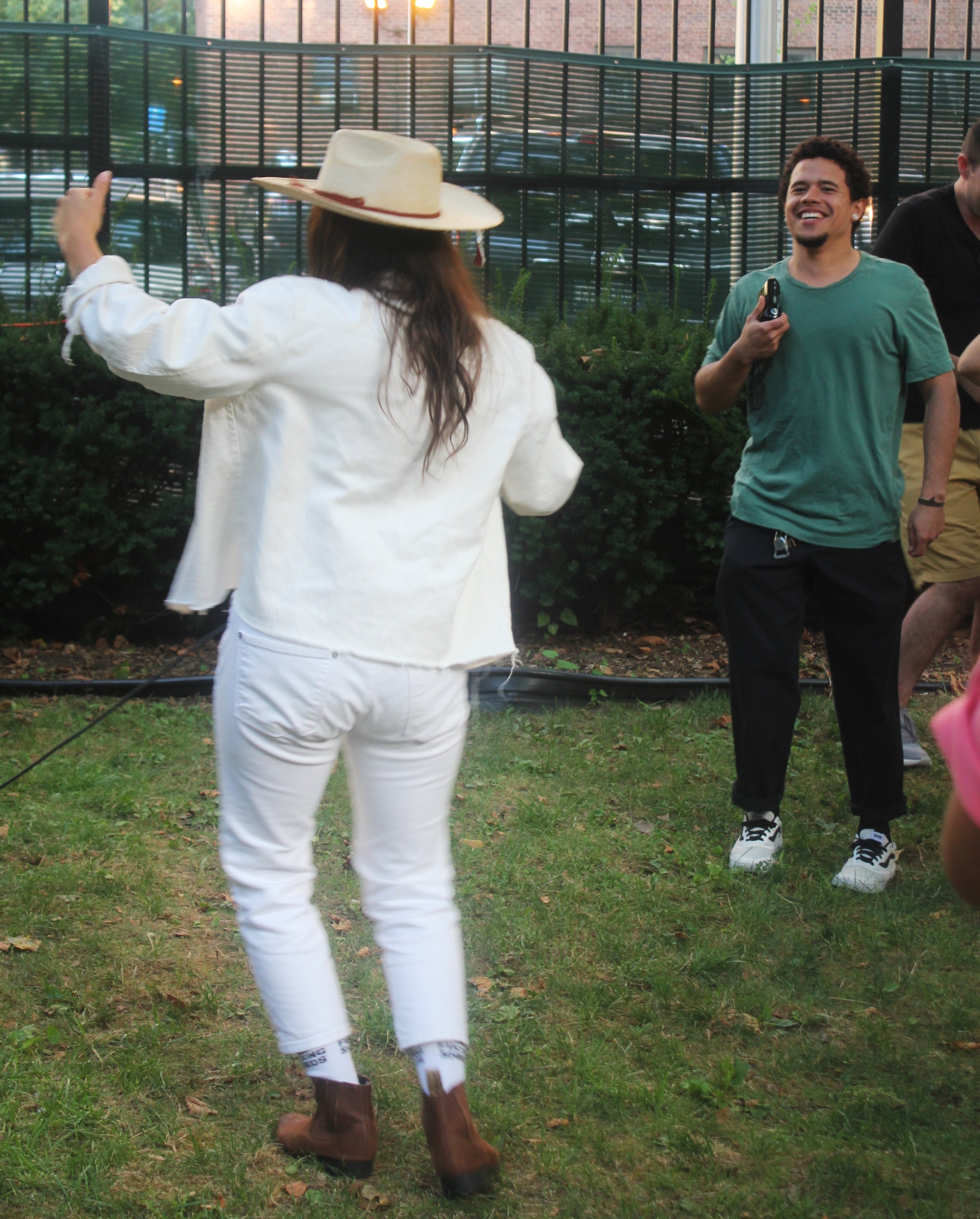
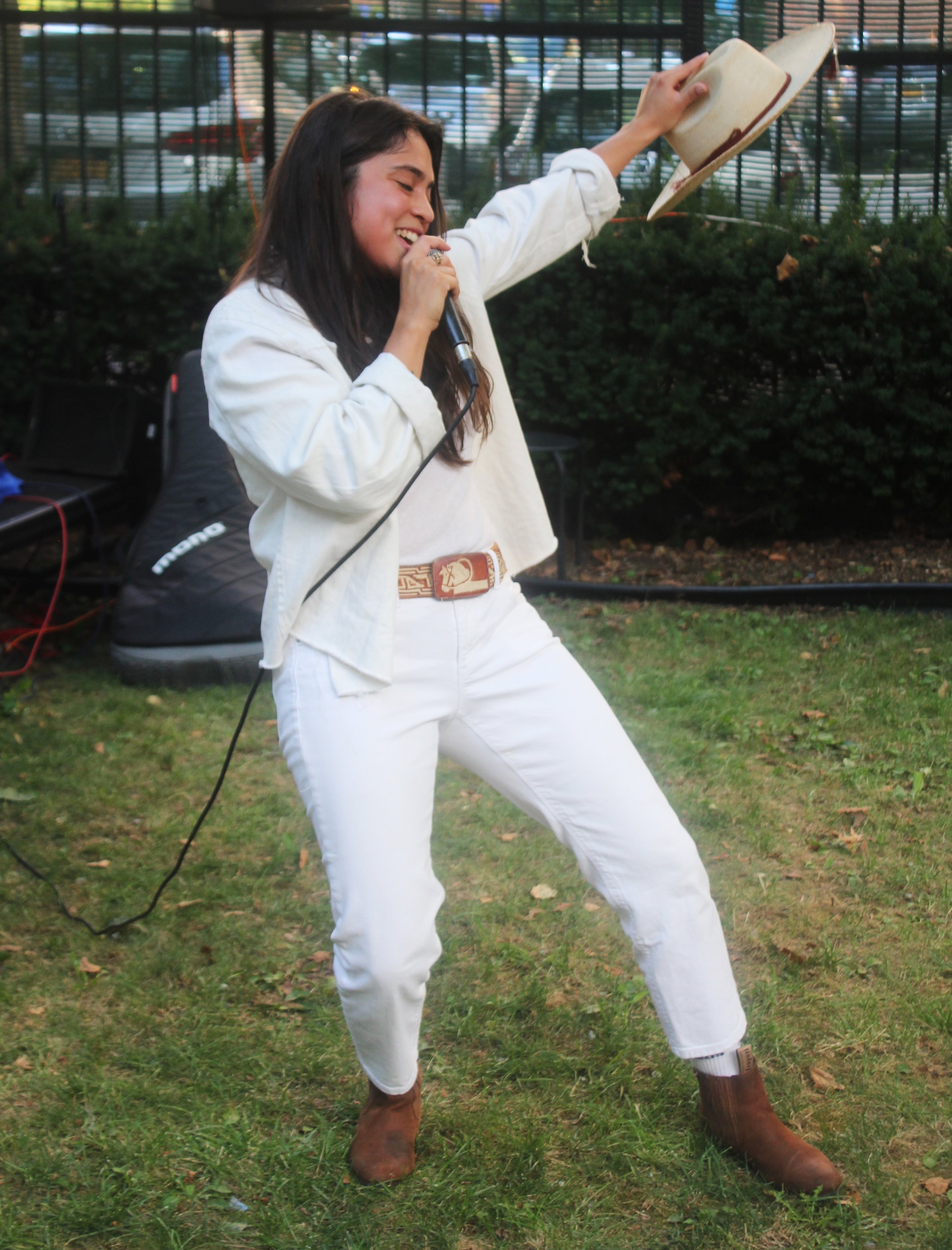
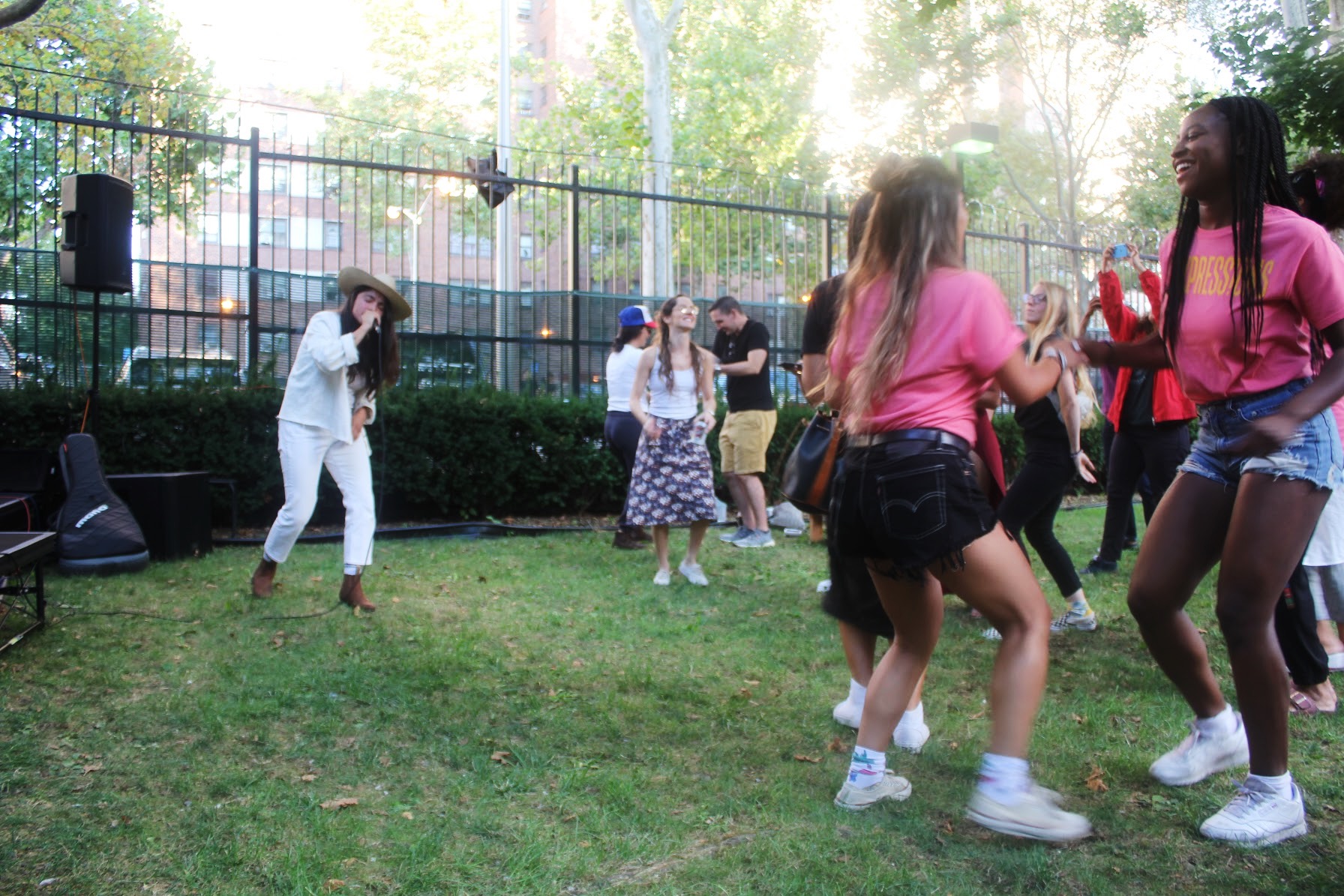
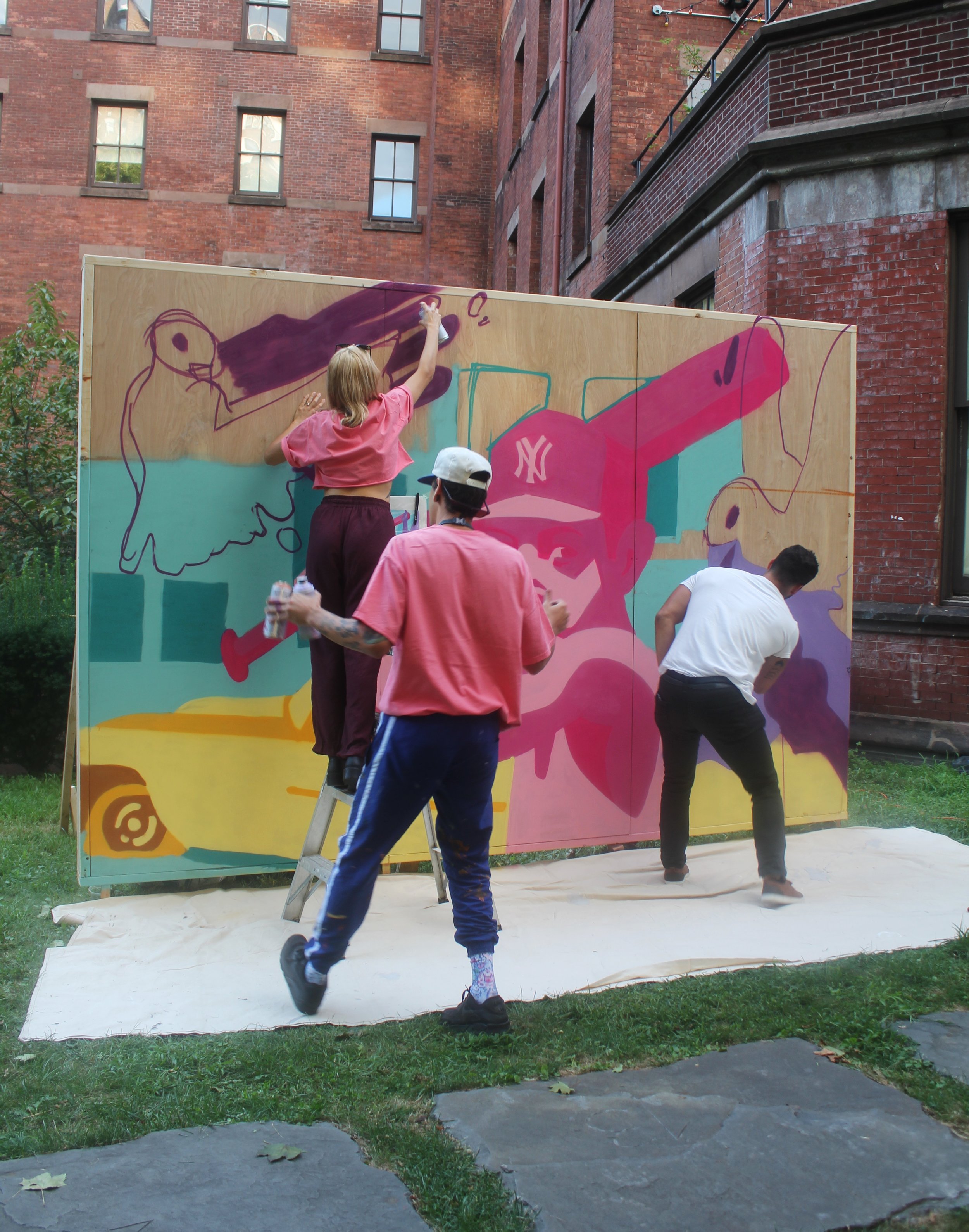
Carmen is the founder and creative director of Mixta. She is originally from the Dominican Republic and currently works in advertising full time in NYC. She loves attending events and will always be down for coffee and collaborating. / Carmen es la fundadora y directora creativa de Mixta. Originalmente de la República Dominicana, Carmen trabaja en una agencia publicitaria en Nueva York y siempre está dispuesta a juntarse a tomar un café y colaborar con otrxs creadorxs.




